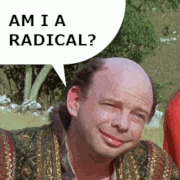(Thread IKs:
dead gay comedy forums)
|
Ardennes posted:That is quite a bit to unpack. It's a very interesting appropriation of left terminology by the agents of the state to back up racial segregation, worth remembering and commenting on. That is what I mean, it is a significant historical document. It reminds us that no way of speaking and no ideological stance is beyond distortion or appropriation
|
|
|
|

|
| # ? May 26, 2024 00:54 |
|
these guys were doing the "source your quotes" bit before there was even an internet
|
|
|
|

|
|
|
|
|
|
|
|
BookmarxCentrist Committee posted:Only labor produces value Top City Homo has issued a correction as of 16:12 on Jul 25, 2021 |
|
|
|
Centrist Committee posted:Only labor produces value ...under commodity production, when marx was writing
|
|
|
|
https://twitter.com/comrade_waluigi/status/1419308066181423116?s=21
|
|
|
|
"surplussy" elaboration has issued a correction as of 23:13 on Jul 25, 2021 |
|
|
|
|
|
|
|
|
|
|
|
Despite Mao being against Deng his entire chairmanship and calling him the "number two capitalist roader" 
|
|
|
|
Ardennes posted:That is quite a bit to unpack. Is that just a noname post?
|
|
|
|
*proletushy
|
|
|
|
Yossarian-22 posted:Despite Mao being against Deng his entire chairmanship and calling him the "number two capitalist roader" people can make mistakes. What's important is we learn from them
|
|
|
|
its also not even true, mao wasnt always the elderly paranoid crank that started the GPCR
|
|
|
|
F Stop Fitzgerald posted:its also not even true, mao wasnt always the elderly paranoid crank that started the GPCR Mao was right all along and was vindicated by later events. He just went about the GPCR all wrong
|
|
|
|
Yossarian-22 posted:Mao was right all along and was vindicated by later events. He just went about the GPCR all wrong China needed trade in Western markets to survive, there was no other way forward. I wouldn’t sign off on everything about Deng but ultimately he was able to gain control because everyone knew something had to be done. Always while the Soviets deserve more of the blame, I wouldn’t say Mao was blameless in the Sino-Soviet split either and the failures of the Great Leap Forward were in part self caused. I would say until 1957-8 that Mao had been making the right calls.
|
|
|
|
gradenko_2000 posted:my two cents here is that Lysenkoism was, in a way, a reaction to, and a rejection of, eugenics I think that is a good take. The problem with Lysenko, the way I see it nowadays, was that he equivocated dialectical materialism into a fundamental law of nature that preceded all other scientific understanding of the world in a rather bizarre way. The best way to explain that is with the vernalized seeds you mentioned: instead of working from the established material understanding of the world, Lysenko believed in the contrary direction of Marxist analysis, that the actions directed at nature take precedence against its material bases. That sort of analysis makes a lot of sense if you are trying to change society, but reality is a different beast entirely. IIRC it was Engels that warned that dialectical materialism can't be flipped around like that because this would lead to anti-materialist conclusions; the whole first big principle of the thing is that the universe is material and what is observed in material reality is the foundation of any proper Marxist analysis. Lysenko's take on scientific observation was in direct opposition to Marx himself, especially when you consider that Darwin and Marx corresponded and Marx warned Darwin against his work being used to justify a lot of incredible dumbass takes Letter from Charles Darwin to Karl Marx, 1st of October of 1873 posted:
So, what gives? Lysenko major issue was that he was a true zealot about dialectical materialism and Stalin was settling final score on the ideological discourse on the matter. Lysenko's own scientific mistakes, from the little I understand, come from taking Stalin's summary of how nature can be best understood in a dialectical process way too loving literally. He equates the revolutionary process in society as being the very same in all biology, which other very Marxist biologists were very quick to try and correct him and demonstrate the point. Lysenko had Stalin's favor for how he empathically defended his points in scientific circles, which ended up being a loving huge problem for his critics, until a lot of highly respected scientists did a hardcore Marxist takedown on why he was wrong and that he fundamentally misunderstood what Stalin was summarizing in his conclusions. tl;dr - lysenkoism would have Engels killed
|
|
|
|
There is a newish field of genetics called "epigenetics" that studies the way that genes are expressed based on real life experiences like famines and may be inheritable (unproven): https://www.cdc.gov/genomics/disease/epigenetics.htm
|
|
|
|
materialist analysis suggests Marx as being more into the proletushy than the proletussy
|
|
|
|
Cpt_Obvious posted:There is a newish field of genetics called "epigenetics" that studies the way that genes are expressed based on real life experiences like famines and may be inheritable (unproven): https://www.cdc.gov/genomics/disease/epigenetics.htm I used to watch the series "The Affair" and in the last season they make a big deal about this "epigenetics" thing where supposedly experiencing trauma can cause biological changes in a person's DNA, and then those changes, since they've manifested into the physical realm, are passed-on to later generations. I thought it was like a sci-fi thing that the show wrote just for itself.
|
|
|
|
gradenko_2000 posted:I used to watch the series "The Affair" and in the last season they make a big deal about this "epigenetics" thing where supposedly experiencing trauma can cause biological changes in a person's DNA, and then those changes, since they've manifested into the physical realm, are passed-on to later generations. I thought it was like a sci-fi thing that the show wrote just for itself. thats sci fi yeah epigenetics has been around for a few decades now, it's very solid mainstream biology. the whole point is that environment factors can influence how DNA is expressed via processes like methylation but (and this is important) the underlying genetic code itself does not change at all. so "environment changes your DNA!" is fiction its been a while since but last I remember there is a lot of conscious effort in epigenetics studies to emphasize that no, Lamarck wasn't correct, but neither was the rigid prevailing idea that DNA was all there was and the pure sequence of genetic code is destiny. I don't know enough to really say but I doubt Lysenkoism is going to find any vindication in epigenetics
|
|
|
|
epigenetics stuff is sus to me. things can be heritable without being genetic!
|
|
|
|
|
yeah I wish I understood biology because cell stuff is really interesting but gently caress organic chem to the 9th circle of hell
|
|
|
|
Raskolnikov38 posted:yeah I wish I understood biology because cell stuff is really interesting but gently caress organic chem to the 9th circle of hell It is not so bad if you aren't learning it in a college course formatted to weed out premed students
|
|
|
|
dead gay comedy forums posted:I think that is a good take. The problem with Lysenko, the way I see it nowadays, was that he equivocated dialectical materialism into a fundamental law of nature that preceded all other scientific understanding of the world in a rather bizarre way. The best way to explain that is with the vernalized seeds you mentioned: instead of working from the established material understanding of the world, Lysenko believed in the contrary direction of Marxist analysis, that the actions directed at nature take precedence against its material bases. That sort of analysis makes a lot of sense if you are trying to change society, but reality is a different beast entirely.
|
|
|
|
yes. exactly. dialectical materialism is a way to view the world, and people in it. not a fundamental characteristic of physical reality. more importantly, if you ask me, dialectical materialism is a way to dissect your own reactions and thoughts about a subject, and extract the most objective, materialist thoughts from your mind. and then ask how this changes your view of it. i dont claim to be free of preconceived notions or internalized liberalism but i'd like to think i reflexively say less of it by doing this.
|
|
|
|
my bony fealty posted:thats sci fi yeah I only got a cursory look at this stuff in college but isn't epigenetics dealing with certain genetic markers/expressions being more likely but not necessarily guaranteed from generation to generation? I learned about it within the context of, like, predispositions to addictions being inherited but that even then it can and frequently does skip generations. "Epigenetic trauma" sounds like straight pseudoscience to justify poo poo like standpoint theory in increasingly ludicrous circumstances. Like the Zionist grandchildren of Holocaust survivors claiming epigenetic trauma means only they can speak on antisemitism or whatever. My understanding was that even if the genetic markers for certain types of behavior were "activated" it means only that someone would have a predisposition towards said behavior and nothing more. MeatwadIsGod has issued a correction as of 13:46 on Jul 26, 2021 |
|
|
|
Raskolnikov38 posted:yeah I wish I understood biology because cell stuff is really interesting but gently caress organic chem to the 9th circle of hell Biology has one overarching theme: the basic processes of life happens when things touch or stick together. Whether we're talking about enzymes catalyzing a metabolic reaction or DNA being transcribed then translated to protein, all of it happens when goop sticks to other goop then new goop comes out. The best known mechanism for epigenetics happens when DNA packaging is manipulated to prevent access to the genetic information within; genes have to be read by cellular machinery, and if that machinery cannot access information then that genetic information is "silenced." DNA is a million times longer than the cells in which it resides: your typical human cell is 1 micrometer in diameter, but six billion base pairs of DNA are ~ 2 meters in length total (0.34 nm/base * 6x10^9). Each cell tightly packages DNA in its nucleus so that it will fit, and the packaging can be altered by various processes to loosen or tighten DNA's "winding." DNA can also be chemically marked with methyl (-CH3) groups. This tag has an interesting effect in that packaging machinery will see these methyl tags and alter the DNA packaging in that region, effectively shutting that gene off. These methyl tags also happen symmetrically across both strands of DNA in a region (DNA is double stranded, remember?) such that both strands are methylated. Finally, these methyl tags are added only to strands of DNA, not the individual nucleotides, so when new DNA is replicated the new strand has no methyl groups at all. The methylation is restored by enzymes that can "read" the hemi methylated DNA and add methyl groups into the newly synthesized DNA. The now fully methylated region is again silenced as before. This method allows eukaryotic organisms to tune their gene expression to their environment in a semi-permanent way; information in DNA isn't removed but "locked out," and this lock out can be inherited by any descendents of a cell with these marks. This includes offspring if the methylation marks are present in gametes. The phenomenon of epigenetics teaches us that events which occur to one generation can affect future generations. The classic example is starvation: a female mouse, when subjected to protein starvation from youth to pregnancy then given a rich diet during pregnancy gives birth to pups that have epigenetic marks consistent with starvation despite never actually being starved themselves. These marks are passed from those mice through two future generations before they finally subside. I'm very new to reading theory, so perhaps others can chime in with the Marxist interpretation of the biology here, but the takeaway is "individual experiences potentially affect the health of future generations."
|
|
|
|
MeatwadIsGod posted:I only got a cursory look at this stuff in college but isn't epigenetics dealing with certain genetic markers/expressions being more likely but not necessarily guaranteed from generation to generation? I learned about it within the context of, like, predispositions to addictions being inherited but that even then it can and frequently does skip generations. "Epigenetic trauma" sounds like straight pseudoscience to justify poo poo like standpoint theory in increasingly ludicrous circumstances. Like the Zionist grandchildren of Holocaust survivors claiming epigenetic trauma means only they can speak on antisemitism or whatever. My understanding was that even if the genetic markers for certain types of behavior were "activated" it means only that someone would have a predisposition towards said behavior and nothing more. Survivors of Nazi camps probably do have changed epigenetic markers from their ordeal, but it's not what those people are talking about and it's not behavioral but metabolic. Modern people have this predisposition to equate cultural practices with biological tendencies, which is maddening at best and loving terrifying at worst.
|
|
|
|
Mr. Lobe posted:It is not so bad if you aren't learning it in a college course formatted to weed out premed students lol it was high school chem: teacher started the basic org chem section and the day we got to “alkaines, alkenes, and alkynes” I knew it was not for me
|
|
|
|
Raskolnikov38 posted:lol it was high school chem: teacher started the basic org chem section and the day we got to “alkaines, alkenes, and alkynes” I knew it was not for me One of my friends in college was from Russia and we were taking chemistry at about the same time, and the way he put it was that chemistry was fine at first. "And then equations started, and I died spiritually."
|
|
|
|
crossposting from the eurasia threadmila kunis posted:https://adamtooze.substack.com/p/adam-toozes-chartbook-28-china-in
|
|
|
|
drat. how many millions of lives did Mao save lol. almost doubling life expectancy is wild
|
|
|
|
exmarx posted:epigenetics stuff is sus to me. things can be heritable without being genetic! how? my bony fealty posted:drat. how many millions of lives did Mao save lol. almost doubling life expectancy is wild yeah I hope they get back on that track soon
|
|
|
|
Raskolnikov38 posted:lol it was high school chem: teacher started the basic org chem section and the day we got to “alkaines, alkenes, and alkynes” I knew it was not for me why, was it the names being similar? or the way that carbons can connect with each other with different amounts of covalent bonds, producing molecules with different physical properties?
|
|
|
|
MSDOS KAPITAL posted:Is it fair to say that the error being made is to regard dialectical materialism as, as you say, a property of nature, instead of an observation of how humans categorize things and interpret objective reality and, subsequently, the patterns that emerge when we socially construct shared reality? yeah, it is a great way of putting it, thanks for that
|
|
|
|
indigi posted:how? "how" is not very well understood still (especially for animals, its been studied a lot more in plants) but two of the major ways are 1) when DNA copies itself it can carry along with it changes like methylation and 2) cells talk to each other, while cells are replicating in a womb the mother's cells are doing all sorts of histone injections and poo poo that can pass on epigenetic traits from the mother
|
|
|
|
that still seems entirely dependent on genetics unless I’m mistaken
|
|
|
|

|
| # ? May 26, 2024 00:54 |
|
indigi posted:that still seems entirely dependent on genetics unless I’m mistaken it's dependent on genetics in the sense that the parameters are determined by the genes, but their expression can be altered by the epigenetic features. this is why, for instance, 2 clones (a commonplace example of this would be identical twins, even barring the fact that some identical twins have mutations differentiating them) could have slight variations in their appearance. the genes are the same, but various factors can influence how they ultimately end up building the proteins that make a lifeform Mr. Lobe has issued a correction as of 16:27 on Jul 26, 2021 |
|
|





































